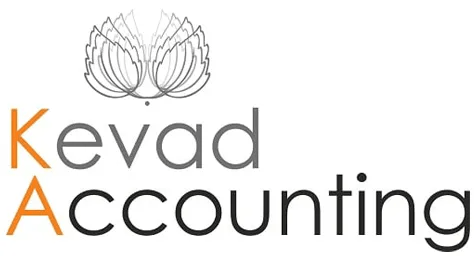Business start-up information
Types of businessesinformation courtesy of Kevad Ltd and provided for clients in the UK
1. Self-Employed Sole Trader
If you start to work for yourself, you are classified as a self-employed sole trader. You must be registered within 6 months after the end of the financial year. The fiscal year begins on 6th April and ends on April 5th. As an entrepreneur, you can carry out almost any type of work with minimum requirements for accounting. Also, you can hire staff. After the end of the fiscal year, you must send your tax return electronically. The declaration must be in before January 31.
Tax Obligations
As an entrepreneur you have to:
- Annually complete and send your tax return as a self employed sole trader to HM Revenue & Customs
- Pay income tax on business profits
- Pay NI (National Insurance, the equivalent of a medical / social tax)
NOTE: You must register for VAT if your annual business turnover reaches £85, 000.
Positives - this type of business is exceptionally easy when it comes to registration and the documentation is relatively straightforward.
Negatives - More attention is given when it comes to tax inspections. All profits are taxed, at a higher rate than corporation tax.
2. Private Limited Company
A private limited company is a company located in the UK, a company taxable under general rules, and which is obliged to provide financial record reports by certain legally established deadlines. The company must have at least one director and they're not required to be a shareholder in the company. The company's shareholders may be both individuals and legal entities.
Duties of the Director
As a director of a private limited company, duties include:
- Following the company rules, which are underwritten in the articles of association
- Storing all company documents, records and reports and logging any changes regarding the company to HM Revenue & Customs and Companies House
- Ensuring that the company's records are accurate and reflect financial business operations
- Filing tax returns for self employed
Tax Obligations
Each private limited company should:
- Annually file financial statements and tax returns
- Complete annual record confirmation with Companies House
- Pay tax and national insurance if the company pays a salary to workers
- Pay VAT (usually on a quarterly basis - NOTE: You must register for VAT if the annual turnover of your business reaches £85,000)
- Pay corporation tax (usually done 9 months and 1 day after the end of the reporting period)
Positives - taxation - corporation tax rate is 19% of the net profit of the company. Additionally, the company does not pay an additional tax for dividends.
Negatives - the necessity for diligent record keeping and documentation provision.
3. Public Limited Company
Unlike private limited companies, the registered capital of a public limited company is divided into shares on the stock market. The authorised capital of the Open Society limited liability company may not be less than £50,000. The state registration of a company is permitted only after the release of the outstanding shares. This consists of 100% of its share capital and a cash payment of not less than 25% of its authorised capital. In a public limited company, there should at least a director and the secretary, or two directors - one of which is delegated to perform the duties of the secretary. In contrast to the secretary of a private limited company, the secretary of a public limited company must have the necessary training and experience, or, in the absence of those attributes, be approved in the position by the majority of shareholders.
Positives - the company can sell its shares on the stock exchange and raise additional capital
Negatives - high level of authorised capital and the high requirements for reporting and auditing
Article description
This article is intended for general familiarisation with the views of businesses and their tax obligations in the UK.



